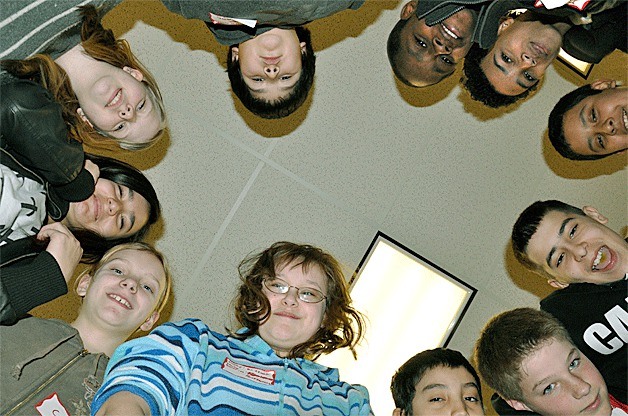By JOE HUNT
Special to the Whidbey News-Times
North Whidbey Middle School counselor Jenny Butler invited a dozen students to have lunch with her recently, billed as a chance to meet new friends and talk about what they all have in common.
The first thing they learned: They all know what it’s like to be the new kid in school. Most of the students were mid-year transfers, having been in the new school only a matter of weeks.
The others were volunteers, students guiding students to help them get a good start in their new homes.
At North Whidbey Middle School, where 54 percent of students have at least one active-duty parent, newcomers arrive any time of the year.
Last year, 145 new students showed up during the school year, a 25 percent turnover rate.
Butler started a new student program this year to help those students settle in and make the necessary adjustments to a new school and town.
Each newcomer is paired with a student guide who can give them a tour of the school, introduce them to staff, and help them make new friends.
Butler asked the kids to come up with the top three problems that make being a newcomer difficult. The same three answers came up again and again: finding their way around a new school; leaving old friends and meeting new ones; and packing and unpacking all their stuff.
On the positive side, however, the kids were unanimous. The best part of a new school is meeting new friends.
“People are really friendly when you’re new, even when you’re shy,” one student said.
This is the first year of the new student program at the school. Butler put it together with the help of Navy-school liaison Brenda Kovach.
Kovach is a former school counselor at Olympic View Elementary, where three out of four kids are from military families.
The results, so far, are promising, Butler said. In surveys, kids have told her they have been successful making new friends and they feel safe and connected to their new school.
In addition, the kids have quickly gotten to know Butler as their school counselor, making them more comfortable about approaching her with their problems, she said.
“They seem to like it here and it seems they have adjusted well,” Butler said.


